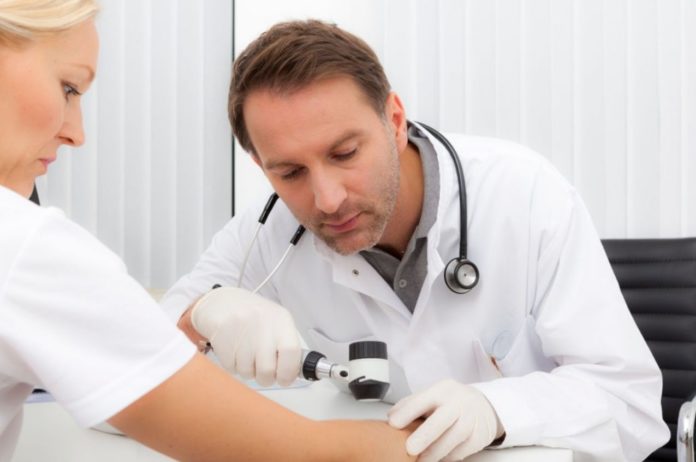In recent times, the scientific community has learned a lot about what raises your risk of developing skin cancer, in addition to well-known factors.
But it’s important to know your skin and what it looks like normally so you notice any unusual or persistent changes.
Mrs. Frances Lord, now in her 60s, warns of the dangers of unprotected sun exposure.
- Scientists in Fear of This New Predator From Red Sea Eating Native Species in Mediterranean
- Does This Mean We Stopped Being Animal and Started Being Human Due to ‘Copy Paste’ Errors?
- The One Lifestyle Choice That Could Reduce Your Heart Disease Risk By More Than 22%
- Aging: This Is What Happens Inside Your Body Right After Exercise
- Immune-Boosting Drink that Mimics Fasting to Reduce Fat – Scientists ‘Were Surprised’ By New Findings
“I did have a standout mole in between my shoulder blades,” she said; it was a skin lesion that felt raised and had changed slightly in size.
“That is what triggered my attention.”
Wanting it to be seen to quickly, Frances booked an online consultation at The MOLE Clinic.
After sending across a few pictures, she was offered an “all-over check” in person.
“I was seen there, in Moorgate, by a nurse, and she did the examination with a magnifying glass.”
The clinic told her that she had two “melanocytic lesions” that were “ulcerations and basal cell carcinoma”.
“I was glad that I had been diagnosed early enough to have treatment,” said Frances with a sigh of relief.
Basal cell cancer, or basal cell carcinoma (BCC)
This type of skin cancer accounts for more than 80 percent of all skin cancers in the UK, confirmed by the British Skin Foundation.
Sometimes referred to as “rodent ulcers”, BCC can “vary greatly in their appearance”.
The first typical sign of BCCs are bleeding scabs that don’t heal completely, which may form into a new lump on the skin.
Some look like “a scaly red flat mark on the skin”, others have a “pearl-like rim surrounding a central crater”
“There may be small red blood vessels present across the surface,” added the British Skin Foundation.
If left untreated, BCCs can cause an ulcer – and although they’re usually painless, they can feel itchy or bleed if caught.
Fortunately, “BCCs can be cured in almost every case”, but treatment might be more complicated if it’s been neglected for a long time.
These types of skin lesions “rarely” spread to other parts of the body, so “it is almost never a danger to life”.
You must seek medical advice, if you have any marks or scans on your skin that are:
- Growing
- Bleeding and never completely healing
- Changing appearance in any way
BCCs are caused by exposure to ultraviolet (UV) light from the sun or sun beds.
Frances was shocked to learn that the mole that alarmed her in the first place wasn’t a BCC.
“The mole I wanted to check between my shoulder blades didn’t actually need treatment – it was a different area altogether,” she revealed.
When it came to deciding on how she wanted to proceed, Frances chose to continue with private treatment.
“This meant I would have a further consultation and start treatment straight away, rather than wait for an appointment with my GP and then wait for a referral on the NHS,” she explained.
Frances was recommended some lotion to use on the affected area for six weeks.
“I’ll then have a follow-up appointment to see if this was successful, or if I need the two moles to be surgically removed,” Frances said.
Currently, on her third week of using the cream, Frances urged other people to “get checked” for skin cancer.
